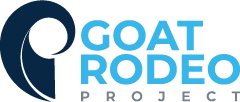I’m all for progress, but I’m beginning to wonder if there is such a thing as too much change.
New Twitter boss Elon Musk doesn’t seem to think so as he ransacks his new company like a burglar would ransack a home in search of the family jewels.
Musk likes being in the headlines and causing controversy. His midnight raid of Twitter has created havoc with half of the workforce being laid off within the first few days, some of them being rehired, ultimatums, subsequent resignations and lock-outs. And that’s just been the story for the poor employees. Let’s not get into the reinstatement of accounts for hate advocates Trump and Ye.
His sweeping changes contravene modern leadership wisdom leaving many a thought leader compelled to turn to their social media platform of choice to offer a critique of the world’s richest man’s leadership philosophy (my favourites here and here) and conclude that it’s only a matter of time before the little blue bird becomes extinct.
I’m not a fan of Musk and have declared to anyone who is willing to listen that I’d never buy a Tesla – not that I’m in the market for a new fancy car so easy for me to say!
The billionaire’s believers point to his many successes including building the most valuable automaker and advancing plans to send an astronaut to mars. They characterize him as a transformational leader.
He believes there’s a better way to do everything, and he sets his sights on constant improvement. He has big ideas and wants to unite his team around his (sometimes outrageous) vision and objectives.
Source: Fingerprint for Success
But can someone be addicted to transformation?
The global digital transformation budget is expected to double to US$1 trillion by 2025 (US$470 billion in 2020). This vast amount of money clearly isn’t being well spent with McKinsey acknowledging that only 30% of transformations are successful decreasing to 16% when it comes to the most fashionable of transformations – “the digital transformation”.
Why do organizations transform?
I’ve been involved in more than my fair share of transformations in my HR career and can relate to many of the reasons identified by Strategy Tools as to why organizations change.
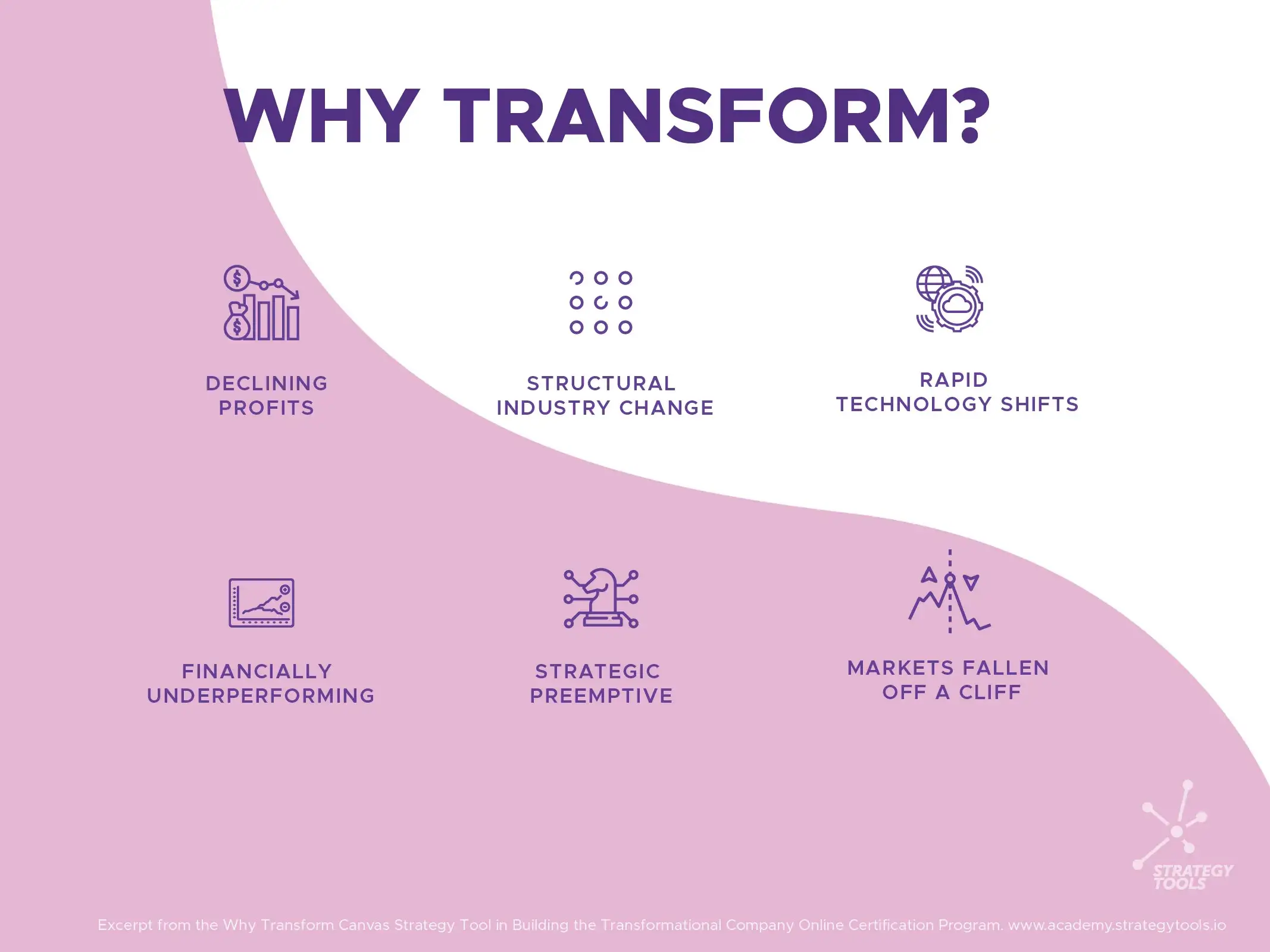
I’ve been involved in acquisitions, mergers, growth-strategies and cost reduction programs. Technology upgrades and business closures. Centralization strategies that are soon undone with decentralization strategies. Regardless of the driver of the disruption, the result has been some sort of transformation program in name and/or structure. It’s involved a significant amount of upheaval and in many cases a significant invoice from a major global consulting firm.
The billions invested by companies in change doesn’t do justice to the significant cost for those involved either because they are directly impacted and lose their job or due to the burnout for the project team chasing overly aggressive targets.
Progress. What progress?
An extreme group of neo-Luddites have recently resorted to a series of stunts to make their point that progress comes at a cost.
Neo-Luddites are concerned about the technological impact on individuals, their communities, and the environment, and while I won’t condone their methods, their message is an important one that risks getting lost in the mallee of chaos.
In the work context, the World Economic Forum predicted in 2020 that technology will disrupt 85 million jobs by 2025 representing about 12% of all jobs globally. Robots have impacted 14% of jobs – although we fear the impact will be much greater.
On the flip side, technology has played a role in the significant reduction of workplace fatal injuries and the increase in real wages.
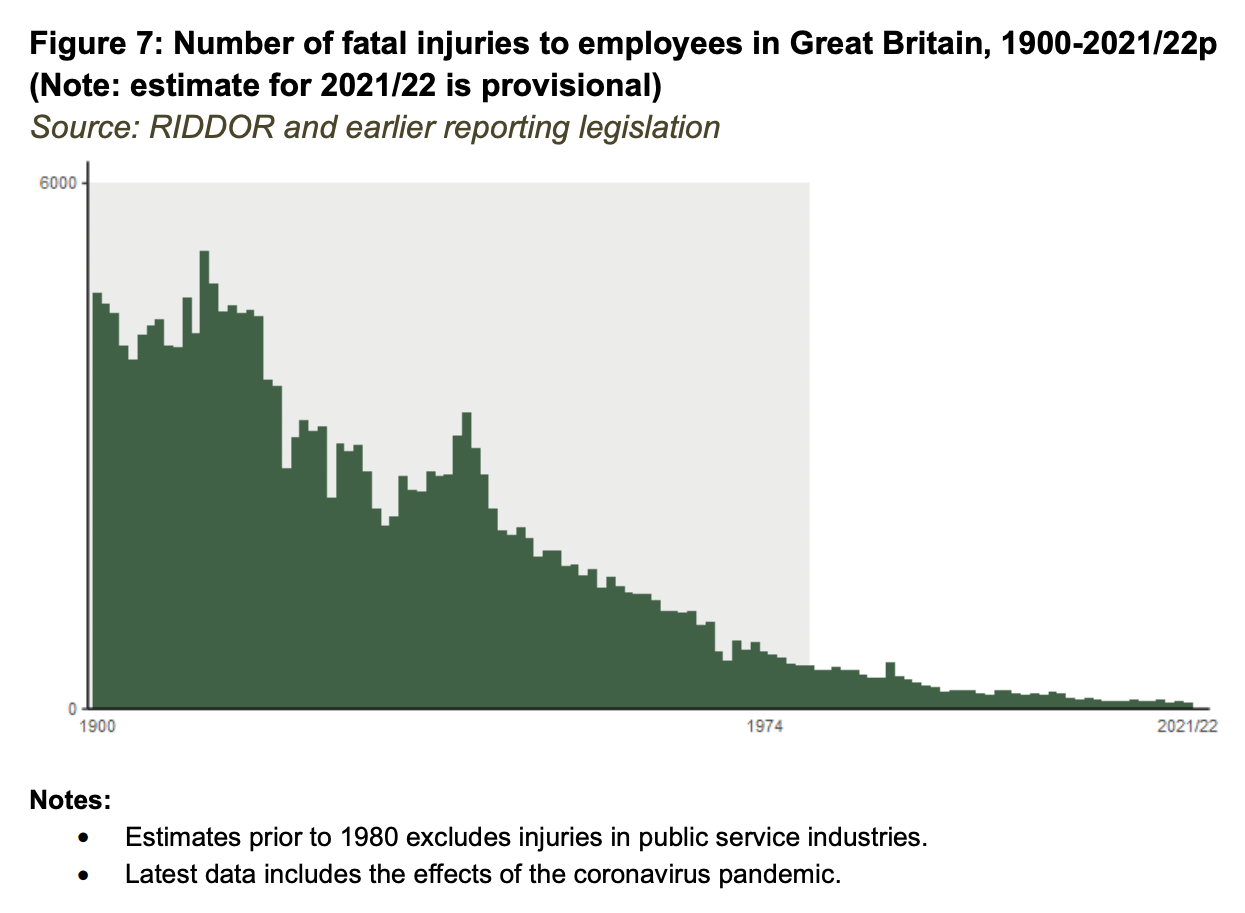
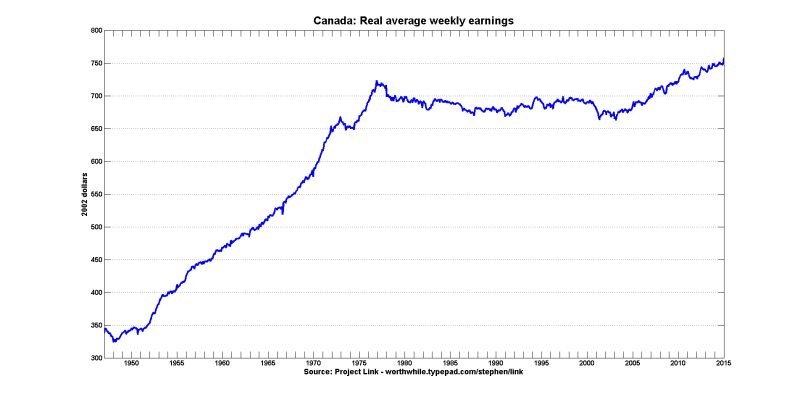
Our collective response to “progress”
Our collective response to these changes as employees is well documented. We’re apathetic. Our level of engagement has stalled at concerningly low levels, and we’ve seen a rise in the “quiet quitting” phenomenon as we re-evaluate our relationship with work.
The stories coming out of Twitter will do nothing to build our confidence in work and the opportunities that exist (particularly for young people) to enter the talent market and create fulfilling careers where they can thrive alongside their other interests.
As HR professionals we play a critical role in managing these transformations to ensure we beat the odds outlined earlier from McKinsey. Our change management strategies need to address the (true not assumed) needs of all segments of our employee population.
But we also need to challenge our leaders and more frequently ask the question “do we really need to change?”.
The option to do nothing is often portrayed as a weak strategy in an environment that rewards decisive and bold actions, but there will be occasions where waiting and reflecting will be the best approach.
Taking personal responsibility
Even if we adopt these delay tactics, it’s unlikely that any of us will be able to hold back the waves of exponential change that we’re experiencing. In his recent post, Packy McCormick presents a compelling image of how future generations may look back at our funny ways.
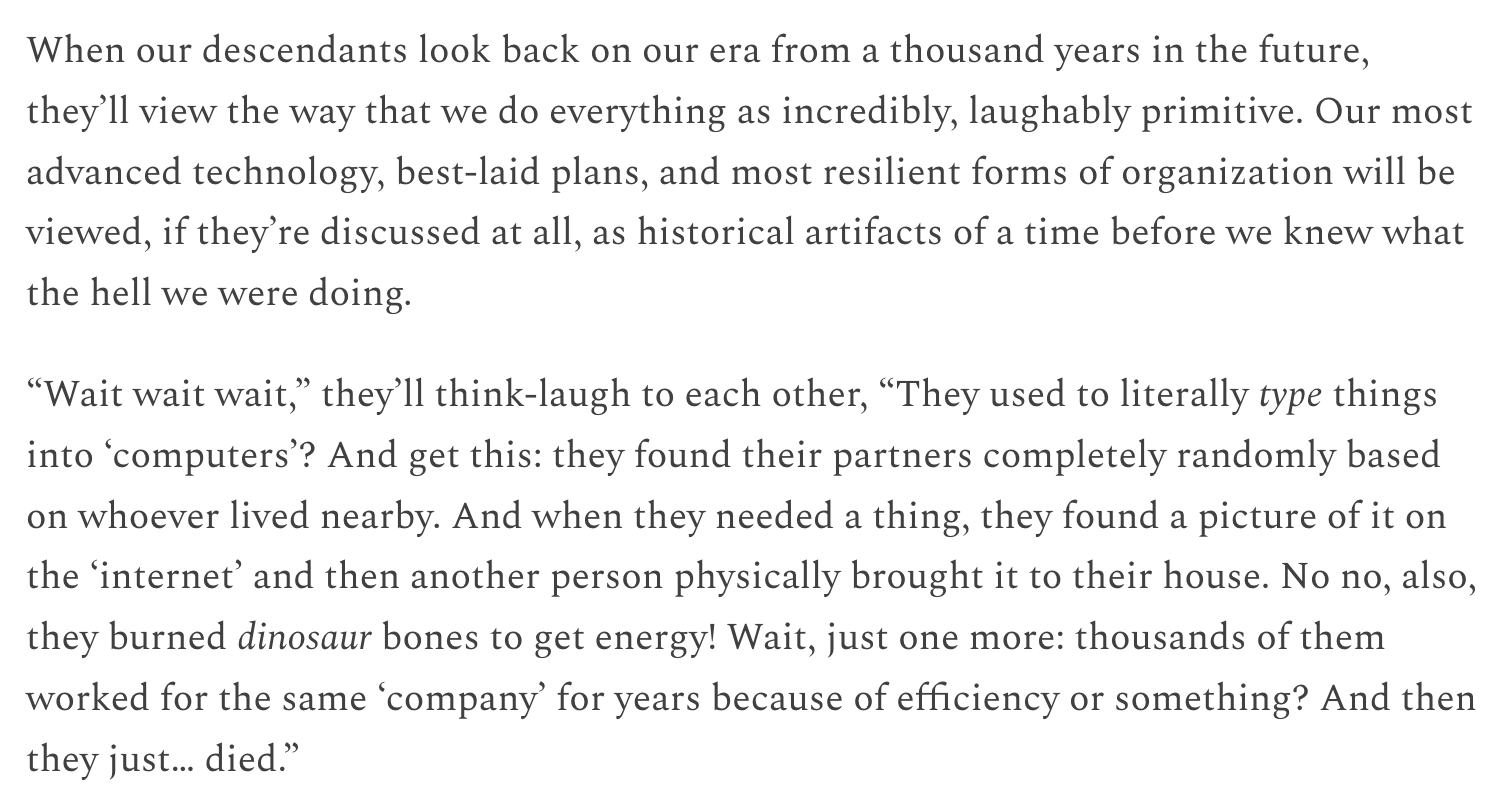
I am reminded of the famous quote from psychiatrist and holocaust survivor Victor Frankl:
“When we are no longer able to change a situation – we are challenged to change ourselves.”
Where change is inevitable, we must take personal responsibility to adopt new strategies to help us deal with the disruption.
Develop a growth mindset
Carol Dweck’s “learn-it-all” strategy helps us to approach change from a place of curiosity and openness. It encourages us to appreciate our own potential in creating the capacity to learn and master new capabilities. That’s why I am a fan of newsletters and podcasts that explore future trends. They fuel my inquisitiveness and stop me from fearing something I don’t understand.
“Knowledge is power. Information is liberating. Education is the premise of progress, in every society, in every family.” Kofi Annan
Control our technology consumption
As a proud owner of a RV, I have learnt to appreciate the simple things in life. The process of making a fire to make a coffee creates a level of presenteeism that can get lost when you’re doom-scrolling through your social media as you wait for the kettle to boil. Research tells us that there is a correlation between social media usage and depression so while there are many positives that have come from technology, limiting its usage can be helpful. It’s worth noting that this philosophy can be extended to business where a technological intervention is often evaluated as the best option creating unnecessary complexity and expense.
Get grounded in what’s most important
But there is no one size solution here. The early adopters who queue all night to pick up the latest iPhone and the self-proclaimed minimalists who have deleted all of their apps will all need to get a sense of what is most important to them. A simple and insightful exercise I often do as a coach is to get clients to identify their needs and wants. The needs are things they must have in their work and the wants are the ideal elements – a list of items they don’t need can also be helpful. It’s through this exercise of taking agency for ourselves that we can build self-awareness of how much change we want in our lives.
Change starts and stops with all of us
The world needs people like Elon Musk. Agitators and disruptors who challenge the status quo and demand attention.
The world also needs people who can create a sense of calm. The opportunity to pause and reflect on the best cause of action and to retain a sense of perspective.
People who ask the question: “do we really need to change?”.

